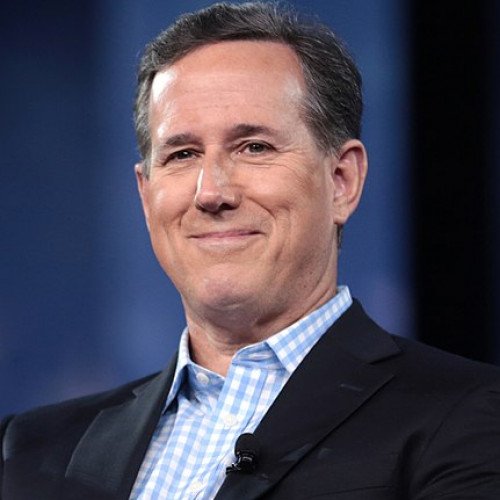Rick Santorum VS Robert Reich

Rick Santorum
Richard John Santorum ( sann-TOHR-um; born May 10, 1958) is an American politician, attorney and political commentator. A member of the Republican Party, he served as a United States Senator from Pennsylvania from 1995 to 2007 and was the Senate's third-ranking Republican from 2001 to 2007. Santorum ran for the 2012 Republican presidential nomination, finishing second to Mitt Romney. In January 2017, he became a CNN senior political commentator. Santorum was elected to the United States Senate from Pennsylvania in 1994. He served two terms until losing his 2006 reelection bid. A Roman Catholic, Santorum is a social conservative who opposes abortion and same-sex marriage and embraced a cultural warrior image during his Senate tenure. While serving as a senator, Santorum authored the Santorum Amendment, which would have promoted the teaching of intelligent design. He was a leading sponsor of the 2003 federal law known as the Partial-Birth Abortion Ban Act. In the years following his departure from the Senate, Santorum has worked as a consultant, private practice lawyer, and news contributor. He ran for the Republican nomination in the 2012 U.S. presidential election. Before suspending his campaign on April 10, 2012, Santorum exceeded expectations by winning 11 primaries and caucuses and receiving nearly four million votes, making him the runner-up to eventual nominee Mitt Romney. Santorum ran for president again in 2016, but ended his campaign in February 2016 after a poor showing in the Iowa caucuses.
Statistics for this Xoptio

Robert Reich
Robert Bernard Reich (; born June 24, 1946) is an American economic advisor, professor, author, and political commentator. He served in the administrations of Presidents Gerald Ford and Jimmy Carter, as well as serving as the United States Secretary of Labor from 1993 to 1997 under Bill Clinton. He was a member of President Barack Obama's economic transition advisory board.Reich has been the Chancellor's Professor of Public Policy at the Goldman School of Public Policy at UC Berkeley since January 2006. He was formerly a professor at Harvard University's John F. Kennedy School of Government and professor of social and economic policy at the Heller School for Social Policy and Management of Brandeis University. He has also been a contributing editor of The New Republic, The American Prospect (also chairman and founding editor), Harvard Business Review, The Atlantic, The New York Times, and The Wall Street Journal. Reich is a political commentator on programs including Erin Burnett OutFront, CNN Tonight, Anderson Cooper's AC360, Hardball with Chris Matthews, This Week with George Stephanopoulos, CNBC's Kudlow & Company, and APM's Marketplace. In 2008, Time magazine named him one of the Ten Best Cabinet Members of the century, and in the same year The Wall Street Journal placed him sixth on its list of Most Influential Business Thinkers.He has published 18 books which have been translated into 22 languages, including the best-sellers The Work of Nations, Reason, Saving Capitalism, Supercapitalism, Aftershock: The Next Economy and America's Future, and a best-selling e-book, Beyond Outrage. He is also chairman of Common Cause and writes his own blog about the political economy at Robertreich.org. The Robert Reich–Jacob Kornbluth film Saving Capitalism was selected to be a Netflix Original, and debuted in November 2017, and their film Inequality for All won a U.S. Documentary Special Jury Award for Achievement in Filmmaking at the 2013 Sundance Film Festival in Utah.In 2015 Reich and Kornbluth founded Inequality Media, a nonprofit digital media company. Inequality Media's videos feature Reich discussing topics relating to inequality and power primarily in the United States, including universal basic income, the racial wealth gap, affordable housing, and gerrymandering.